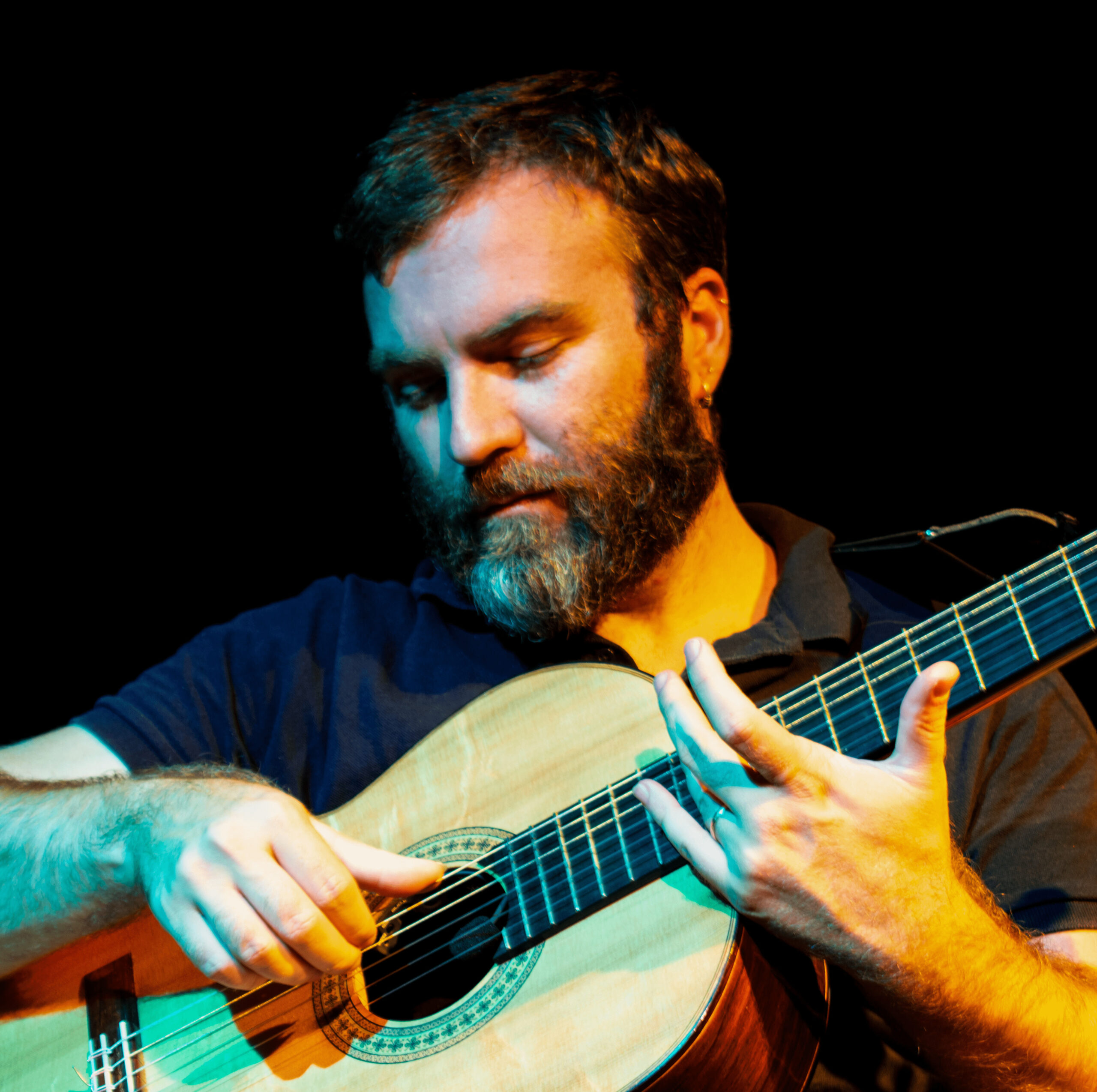Master's
Collaborator
UÉvora
NOVA FCSH
Caio Vitor Priori dos Santos is a doctoral researcher in music and musicology at the University of Évora, Portugal. He holds a master’s degree in music from the Federal University of São João del-Rei, Minas Gerais, where he was awarded a scholarship by the Coordination for the Improvement of Higher Education Personnel (CAPES), in the line of research “theoretical and practical dimensions of musical performance”. Professionally, between 2008 and 2013, he taught guitar and electric guitar in elementary and technical courses at the UCP Music School (Catholic University of Petrópolis), worked as Cultural Activities Coordinator at the CEU (Unified Arts and Sports Centre) in the same city between 2014 and 2016 and, after that, as part of his master’s degree, developed research into the stylistics of the piece “Lamentos do Morro” by Aníbal Augusto Sardinha (a Brazilian musician of Portuguese descent), publishing some texts in the “1st SIM! – International Guitar Symposium – The guitar in Latin America: dialogues, trends and perspectives” and at the “XXX Anppom Congress”. After that, she became part of the “Guitar and cultural identities” research group (part of the “Ethnomusicology of musical instruments” line) at UFG, which aims to “formalise and consolidate a network of researchers whose main theme is the guitar in Latin America, which brings together academic production focused on the practice of the guitar in our continent and the role of this instrument as an articulating axis of social, political and cultural representations”. She is currently a member of the thematic group “Musical Iconography in Ibero-America and its Overseas Connections” (ARLAC/IMS) and at CESEM (Centre for the Study of Sociology and Musical Aesthetics), as well as collaborating with the GTCC Group (Critical Theory and Communication Group), she is doing research as part of her PhD, with a thesis entitled “The imaginary of the Brazilian guitar”, serving on the executive committee of the Thematic History of Music in Portugal and Brazil project (UIDP/00693/2020), as an FCT research grant holder under reference UI/BD/153718/2022, developing work related to his doctoral research, participating in international academic events in the Americas and Europe.

